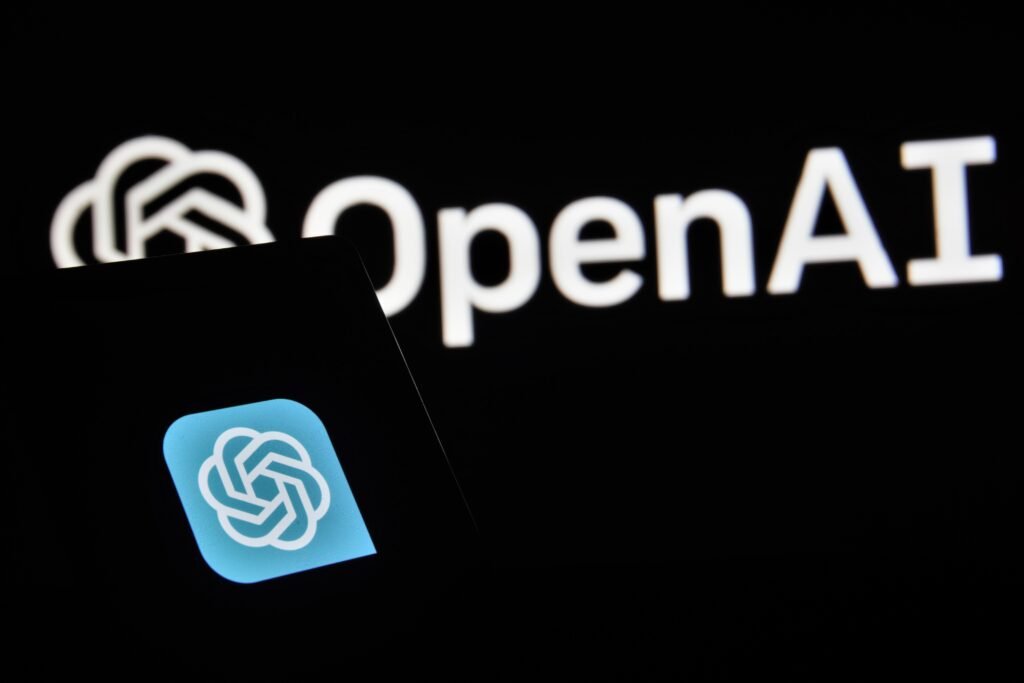You might be surprised to learn that the concept of Artificial Intelligence (AI) has been around for much longer than you might have imagined. The roots of AI can be traced back to the 1940s, when researchers began exploring the idea of creating machines that could mimic human intelligence. In this article, we will delve into the fascinating history of AI, exploring the pioneers and their groundbreaking contributions that laid the foundation for the remarkable advancements we witness today. Prepare to embark on a journey through time, as we uncover the origins of the technology that forever changed our world.
Overview
Artificial Intelligence (AI) refers to the simulation of human intelligence in machines that are programmed to think, learn, and problem-solve like humans. It has become an integral part of our lives, impacting various industries and sectors, from healthcare to transportation. The rapid evolution of AI has revolutionized the way we live, work, and interact with technology.
Definition of Artificial Intelligence
Artificial Intelligence can be defined as the ability of machines to exhibit intelligent behavior, perform tasks that typically require human intelligence, and learn from experience. This includes reasoning, problem-solving, understanding natural language, recognizing patterns, and making autonomous decisions. AI can be classified into two categories: narrow AI, which is designed to perform specific tasks, and general AI, which possesses the ability to understand, learn, and reason across a wide range of domains.

Importance of Artificial Intelligence
Artificial Intelligence has gained immense importance due to its numerous applications and potential benefits. It has the potential to enhance productivity, improve efficiency, optimize processes, and provide personalized experiences. AI-powered systems can analyze vast amounts of data, making it possible to extract valuable insights and make data-driven decisions. AI technology also has the potential to tackle complex problems and drive innovation in various fields, such as healthcare, finance, manufacturing, and transportation.
Evolution of Artificial Intelligence
The field of Artificial Intelligence has evolved significantly over the years, driven by advancements in computing power and the accumulation of knowledge in various subfields. The following milestones mark key turning points in the evolution of AI.
Alan Turing and the Turing Test
In the 1950s, British mathematician and computer scientist Alan Turing proposed the concept of an imitation game, now known as the Turing Test, as a way to determine if a machine can exhibit intelligent behavior indistinguishable from that of a human. This test laid the foundation for the evaluation of AI systems and sparked significant research in the field.
The Dartmouth Conference
In 1956, the Dartmouth Conference marked the birth of AI as a distinct field of study. A group of scientists, including John McCarthy, Marvin Minsky, and Herbert A. Simon, gathered at Dartmouth College to discuss the possibility of creating intelligence in machines and laid the groundwork for future AI research.
The Birth of Machine Learning
In the 1950s and 1960s, researchers began exploring the use of algorithms and statistical models to enable machines to learn from data. This gave rise to the field of machine learning, which forms the basis of many AI applications today. Early techniques included neural networks and decision tree models.
The Development of Expert Systems
During the 1970s and 1980s, researchers focused on developing expert systems, which are AI systems designed to mimic the knowledge and reasoning capabilities of human experts in specific domains. These systems used rule-based logic and knowledge representation techniques to solve complex problems, leading to significant advancements in areas such as medical diagnosis and financial analysis.

Early Pioneers in Artificial Intelligence
The field of AI owes much of its progress to the pioneering work of individuals who laid the foundation for AI research and development.
John McCarthy
John McCarthy, often referred to as the “father of AI,” coined the term “artificial intelligence” and played a crucial role in the development of the field. He was a key participant in the Dartmouth Conference and contributed to the creation of the programming language LISP, which became widely used in AI research.
Marvin Minsky
Marvin Minsky was a renowned cognitive scientist and AI researcher. He co-founded the MIT Artificial Intelligence Laboratory and made significant contributions to the fields of neural networks, robotics, and perception. Minsky’s work in machine vision paved the way for advancements in computer vision and object recognition.
Herbert A. Simon
Herbert A. Simon was a Nobel laureate in economics and a pioneer in the field of AI. He made notable contributions to the development of decision-making systems and problem-solving techniques. Simon’s research on problem-solving algorithms laid the groundwork for the development of intelligent agents and planning systems.
Allen Newell
Allen Newell was a computer scientist who collaborated closely with Herbert A. Simon. Together, they developed the Logic Theorist, a program capable of proving mathematical theorems. Newell’s work in cognitive psychology and AI led to the development of the physical symbol systems hypothesis, which proposed that intelligent behavior can be achieved through the manipulation of symbolic representations.
The Role of Military Agencies
Defense Advanced Research Projects Agency (DARPA) has played a significant role in the development of AI.
The Role of DARPA in AI Development
DARPA, established in 1958, has been instrumental in funding and supporting AI research initiatives. It has played a central role in advancing AI technologies, including speech recognition, machine translation, and autonomous systems. DARPA’s investments and collaborations with academia and industry have propelled AI research and paved the way for breakthroughs in various domains.
Project MAC and LISP
Project MAC (Machine-Aided Cognition) was an influential research project at MIT, partially funded by DARPA. It focused on developing advanced computing technologies, including time-sharing systems and programming languages. The development of the programming language LISP, initiated by McCarthy and his team, was a key outcome of Project MAC and became widely used in AI research.

Contribution of Research Institutions
Several research institutions have made significant contributions to the advancement of AI.
Stanford Research Institute (SRI)
The Stanford Research Institute (now SRI International) has been at the forefront of AI research since its establishment. Researchers at SRI developed Shakey, one of the first mobile robots capable of perceiving and interacting with its environment. The institute has also made significant contributions to natural language processing, computer vision, and robotics.
Artificial Intelligence Laboratory at MIT
The MIT Artificial Intelligence Laboratory, founded by McCarthy and Minsky, became a prominent hub for AI research. It focused on areas such as machine learning, computer vision, and robotics. Many innovative technologies and algorithms were developed at the lab, shaping the field of AI and influencing subsequent research efforts worldwide.
Carnegie Mellon University (CMU)
Carnegie Mellon University has been a leader in AI education and research. The university’s Robotics Institute has made groundbreaking contributions to the development of autonomous systems and robotics. CMU researchers have also pioneered advancements in areas such as natural language understanding, machine learning, and computer vision.
Xerox PARC
Xerox PARC (Palo Alto Research Center) was a research and development hub that made significant contributions to AI and computer science. PARC researchers developed pioneering technologies, including the Smalltalk programming language and the Xerox Alto, an early personal computer. The center also played a crucial role in the development of graphical user interfaces and object-oriented programming, both of which have had a profound impact on AI user interfaces and software development.
Commercialization and Industry Players
Major technology companies have played a crucial role in the commercialization and widespread adoption of AI technologies.
IBM and Deep Blue
IBM’s Deep Blue, an AI-powered chess-playing computer, made history in 1997 by defeating world chess champion Garry Kasparov. This landmark achievement showcased the potential of AI and brought it into the global spotlight. IBM’s continued AI advancements, such as Watson, have further pushed the boundaries of AI applications in various industries, including healthcare and finance.
Google and DeepMind
Google’s acquisition of DeepMind in 2014 signaled the company’s ambition to become a leader in AI research. DeepMind’s AlphaGo made headlines in 2016 when it defeated the world champion Go player, demonstrating the power of AI in mastering complex strategy games. Google’s continued investment in AI research and development has expanded the frontiers of AI in various domains, from natural language processing to computer vision.
Apple’s Siri and Neural Networks
Apple’s virtual assistant, Siri, made its debut in 2011 and introduced AI-powered voice recognition and natural language understanding to a wide audience. Siri utilizes neural networks and machine learning algorithms to understand user commands and provide relevant information. Apple’s investments in AI have expanded Siri’s capabilities and driven advancements in voice recognition and AI-assisted user experiences.
Microsoft and Cortana
Microsoft’s Cortana, a virtual assistant integrated into Windows operating systems, has become an integral part of Microsoft’s AI strategy. Cortana leverages AI technologies to understand and respond to user commands, provide personalized recommendations, and assist with tasks. Microsoft’s research initiatives, including the Microsoft Research AI division, continue to drive advancements in AI technologies and applications.
Amazon and Alexa
Amazon’s Alexa, powered by AI, has become a ubiquitous presence in smart homes worldwide. Alexa’s voice recognition capabilities and integration with smart devices have transformed the way people interact with their homes and access information. Amazon’s investments in AI research and development have positioned Alexa as a market-leading voice assistant, enabling users to control their environment, shop, and access a wide range of services through voice commands.
Breakthroughs in Artificial Intelligence
AI research has witnessed significant breakthroughs in recent years, fueling advancements in various domains.
The Development of AlphaGo
In 2016, DeepMind’s AlphaGo made headlines by defeating world champion Go player Lee Sedol. This milestone marked a significant advancement in AI’s ability to tackle complex strategy games. AlphaGo’s success relied on deep reinforcement learning and neural networks, demonstrating the power and potential of these AI techniques.
Advancements in Natural Language Processing
Natural Language Processing (NLP) has seen remarkable progress due to advancements in deep learning and neural networks. AI systems can now understand, interpret, and generate human language with increasing accuracy. Applications of NLP include machine translation, sentiment analysis, speech recognition, and chatbot technology.
Image and Speech Recognition
AI-powered image and speech recognition technologies have achieved remarkable accuracy and widespread adoption. Deep learning algorithms have enabled machines to recognize and classify objects in images and transcribe spoken words with high precision. These advancements have opened up new possibilities in areas such as autonomous vehicles, medical imaging, and content moderation.
Robotics and Automation
AI has revolutionized the field of robotics and automation, enabling machines to perform complex tasks in various industries. From manufacturing to healthcare, robots powered by AI can carry out intricate actions, learn from their environment, and adapt to changing situations. This has led to increased efficiency, improved safety, and expanded capabilities in fields ranging from surgery to logistics.
Contemporary AI Research
AI research is a dynamic field, constantly pushing the boundaries of what machines can achieve.
OpenAI and Reinforcement Learning
OpenAI, a research organization co-founded by Elon Musk and others, focuses on advancing AI in a safe and beneficial manner. Their work includes significant contributions to reinforcement learning, a technique that enables machines to learn through trial and error. OpenAI’s research has led to breakthroughs in areas such as game playing, robotics, and autonomous systems.
DeepMind’s AlphaFold
DeepMind’s AlphaFold shook the scientific community in 2020 by accurately predicting the 3D structures of proteins. This breakthrough holds the potential to accelerate drug discovery and advance our understanding of complex biological systems. DeepMind’s ongoing research continues to push the boundaries of AI in the field of life sciences.
Facebook AI Research
Facebook’s AI Research (FAIR) division focuses on advancing AI in areas such as computer vision, natural language understanding, and reinforcement learning. FAIR has contributed to the development of state-of-the-art AI models, such as the Transformer architecture used in language translation and the Detectron system for object detection. The division’s research also explores the ethics, fairness, and transparency of AI systems.
AI Ethics and Impact
The ethical implications of AI have gained significant attention in recent years. Researchers, industry leaders, and policymakers are actively working on establishing ethical guidelines and regulations for the development and use of AI technology. The impact of AI on society, including issues related to privacy, bias, and job displacement, is a subject of ongoing research and discussion.
AI in Popular Culture
Artificial Intelligence has long captivated the imagination of popular culture, with countless depictions in films, television shows, books, and video games.
Depictions in Science Fiction
Science fiction has often portrayed AI as powerful entities capable of surpassing human intelligence and controlling the world. From Isaac Asimov’s “I, Robot” to the sentient HAL 9000 in Stanley Kubrick’s “2001: A Space Odyssey,” AI’s portrayal in fiction reflects societal hopes, fears, and uncertainties about the impact of advanced technology.
Movies and Television Shows
AI has been a popular theme in movies and television shows, ranging from dystopian visions like “The Matrix” and “Blade Runner” to more lighthearted representations like “Wall-E” and “Her.” These portrayals explore the potential of AI to enhance human life or its potential dangers when misused.
AI Influences in Video Games
AI has been an integral part of video games for decades, with intelligent non-player characters and advanced algorithms enhancing gameplay experiences. Recent advancements in machine learning have opened up new possibilities for game developers, enabling more realistic behaviors, adaptive gameplay, and procedurally generated content.
The Rise of AI Assistants
Personal AI assistants, such as Siri, Alexa, Google Assistant, and Cortana, have become increasingly ubiquitous. These voice-activated assistants have transformed the way we interact with technology, allowing us to control our devices, access information, and perform tasks using natural language. As AI assistants continue to evolve, they are likely to become even more integrated into our everyday lives.
Future of Artificial Intelligence
The future of Artificial Intelligence holds tremendous potential for further advancements and transformative applications.
Advancements in Neural Networks
Neural networks, a core component of AI, continue to evolve with advancements in deep learning, reinforcement learning, and unsupervised learning techniques. Future developments may lead to even more sophisticated models capable of handling complex tasks, better understanding human language, and achieving higher levels of generalization.
Ethical Considerations and Regulation
As AI becomes more capable and embedded in various aspects of our lives, addressing ethical considerations and establishing regulations will be crucial. Ensuring fairness, transparency, and accountability in AI systems is essential to avoid bias, discrimination, and unintended consequences. Ongoing discussions and collaborations among researchers, policymakers, and industry leaders are vital in shaping the ethical landscape of AI.
AI in Healthcare and Medicine
AI has the potential to revolutionize healthcare and medicine by enabling more accurate diagnostics, personalized treatments, and drug discovery. Machine learning algorithms can analyze vast amounts of medical data and assist in identifying patterns, predicting disease outcomes, and supporting clinical decision-making. AI-powered robotic systems may also enhance surgical procedures and provide remote medical assistance.
Autonomous Vehicles and Robotics
The development of AI technologies, coupled with advancements in robotics and automation, is driving the progress towards autonomous vehicles. Self-driving cars are being tested and deployed, aiming to improve transportation efficiency, reduce accidents, and transform the mobility landscape. Additionally, robotic systems are becoming increasingly capable of performing tasks in varied environments, from warehouse automation to space exploration.
In conclusion, Artificial Intelligence has come a long way since its inception. From the early pioneers and breakthroughs of the past to the contemporary research and future possibilities, AI continues to shape our world in unparalleled ways. As we explore the frontiers of AI, it is crucial to ensure ethical practices, address the impact on society, and harness the potential of AI for the betterment of humanity. With continued research, collaboration, and responsible development, Artificial Intelligence promises to deliver immense benefits and shape a prosperous future.






